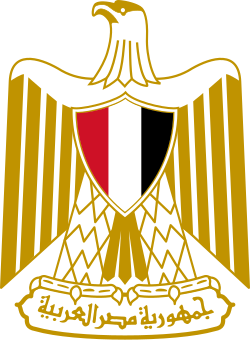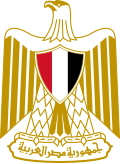History and structure
After Egypt's independence from Britain during the July 1952 Revolution, the new regime established the Ministry of National Guidance in November of that year, giving it wide responsibilities over broadcasting, journalism, press attaches and film censoring, as well as managing tourism, museums, theatre productions, and popular culture. [1] [2] It was considered based on the French model, but also shaped by the experiments of various Eastern Bloc countries with centralized production and dissemination of culture. [3] The ministry was renamed by President Gamal Abdel Nasser in 1958 as the Ministry of Culture and National Guidance. [4] [2]
During president Anwar Sadat's regime, the ministry was renamed and restructured a number of times. In the first cabinet in October 1970 there was a Ministry of Culture, with Tharwat Okasha, and a separate Ministry for National Guidance with Mohamed Fayek. [5] Within a month the minister of culture was replaced with Badraldin Abughazi, and the Ministry of National Guidance renamed as the Ministry of Information with the same minister. [6] After a further few months in May 1971 Ismail Ghamem replaced Abughazi. [7] In 1979 it was the Ministry of Culture and Information (during Mansour Hassan's tenure). [8]
Under the Mubarak regime it became the Ministry of State for Culture in 1982, with the information portfolio spun off into a separate ministry yet again. [9]
This page is based on this
Wikipedia article Text is available under the
CC BY-SA 4.0 license; additional terms may apply.
Images, videos and audio are available under their respective licenses.

